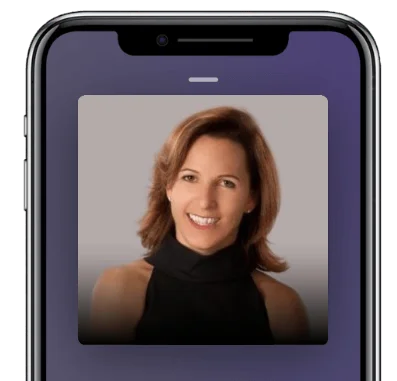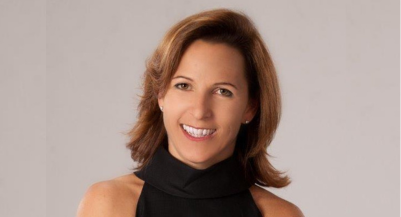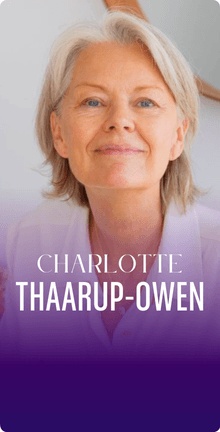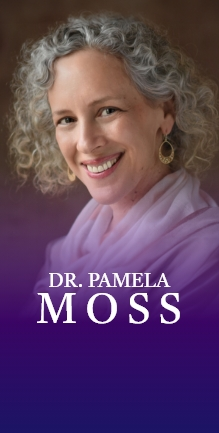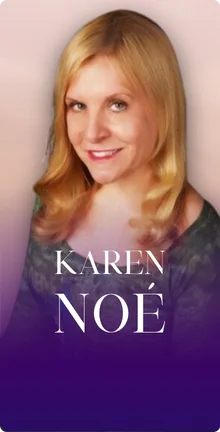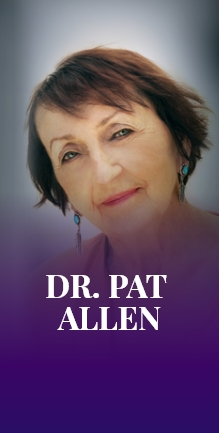In this Episode
- [02:20]Stephan asks Lisa Cini the origin of how she gets involved in the world of aging.
- [05:05]Lisa discovers her grandmother’s hidden life, a precious experience that brings closure and regret.
- [10:38]Lisa explains the different perspectives on death and finding purpose in life through the experiences of losing a loved one.
- [18:51]Lisa reflected on personal and business growth in the past coaching programs. Stephan channels questions without preparation, emphasizing cardinal behavior.
- [25:59]Lisa highlights personal growth and self-acceptance, acknowledging lowered expectations.
- [37:49]Lisa’s miscommunication led to project loss and learning communication lessons. Understanding different communication styles is crucial.
- [41:40]Lisa discusses showing empathy and meeting people where they are.
Lisa, it’s so great to have you on the show.
Thank you. I’m so happy to be here.
First of all, let’s start with your origin story. How did you get so involved in this world of aging in place and thriving as you age, assisted living environments, and that sort of stuff? How did this become a passion for you?
The golden rule is to take care of people the way you want them to be taken care of.
That’s a great question. I’ve thought a lot about why I ended up here. I originally wanted to do interior design for retail environments but ended up going into healthcare. When I was younger, I wanted to be a doctor and ended up in senior living. When I thought about it, I realized I’m surrounded by longevity. My kids, who are now 26 and 29, at one point had six great-grandparents alive. I had my own side, which was the Italian-German side. They were 99 and 100 when they passed. I had a great-grandfather who lived until 92.
Then my other grandparents were 96, in probably the late ‘80s, because he worked in a coal mine. But longevity is definitely the story of our family on both sides, as is marriage. Seeing that unfold without going into senior living or at the very last stages, and how our family kind of worked through memory loss, not memory loss. Having the matriarchs hold everything together is really why I ended up going into it.
I saw that there was a lack of dignity, freedom, and independence. They use the term ageism now, a new term, but people would just write off people who were getting older, and I didn’t see that. I always said, “Let’s do things the way I would want my grandparents to live,” or “Can I help someone with a conversation and help their parents?” Basically, the golden rule is to take care of people the way you want them to be taken care of.
You had a grandmother who lived with you as she had Alzheimer’s, right?
She did. My grandmother, who was just a lady, was a southern West Virginia Baptist. My grandfather had passed. My grandmother and grandfather lived with my mother and father, and I had a 90-year birthday party for her. All my cousins came in, and it was like, “Hey, we’re going to send you off. We’re going to tell you how much we love you.” We read a book and wrote all the great stories, and she danced at the party. I thought, one, baptists don’t typically dance. But two, I thought, “She’s really not going to die soon. She’s going to live.”
As the oldest daughter of five children, I had envisioned that my parents would move in with us, and I didn’t have room for her. I spent the next two years kind of planning that and then moving us all together. My kids were in high school, my husband and my parents were in there in the ‘70s, and my grandmother at 92, then with Alzheimer’s.
We did that life together and actually wrote one of the books about it, Hive, and found that so many more people were doing this and struggling with it and also had the wonderfulness of it that you get with truly being connected generationally, which I don’t think we often get to hear the stories any more when you’re spending a couple of hours on Christmas.
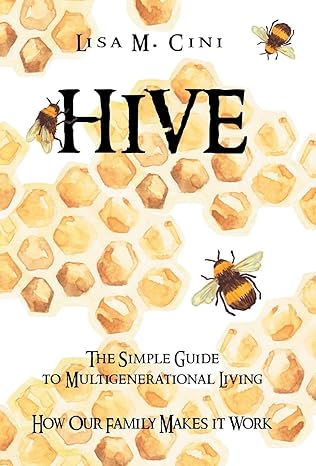
How was it to see her decline in terms of her mental faculties with Alzheimer’s? It must have been really difficult for you.
It’s a hard question because she was such a lady. She never went out of the house without her hair, makeup, and purse, and she never drove a day in her life. But she was smart and very spiritual. I was embarrassed for her, and that’s kind of the best way to say it. She didn’t know, but I was embarrassed for her. I remember one time she came out of her little apartment suite that we had, and she was in her bra and underwear, and my son, who was a teenager, saw her. It’s not that she was showing anything that any bathing suit wouldn’t show, but I knew she would be mortified if she knew she had done that. That’s the really hard part of seeing somebody decline. She’d also get confused and angry. Sometimes I loved her, but I didn’t like her.
How long did she end up living?
Four and a half years with us. She died in the home. It was wonderful from the standpoint. The last couple of months were really hard. But every day, my kids got to come home from school and see their grandma, and they got to learn the long game of life, which I don’t think a lot of kids get to learn anymore. She also got to have that vibrant life that kids bring from playing the piano and having chickens, and we had bees and rabbits and those types of things. Being able to be with people who loved her every single day was very much mutually beneficial for all of us.
What’s the biggest gift that came out of this experience, this challenge of her decline and all that, yet providing her a great deal of comfort and certainty by letting her live out the last part of her life with loved ones instead of in a facility?
I think there were different gifts for everyone. For me, I got to actually spend time with her. I found out that she had played the violin in high school, that she was the star in the high school musical, and that she played basketball, which I had no idea they even let girls play sports back then. I didn’t know her before she was a wife, mother and grandmother. I got to actually find that out. That happens in the space in between that you don’t normally get to have. That was very precious to me.
To care for someone who has cared for you creates wisdom that most kids don’t get to have.
I was actually quite saddened by it to a certain extent because I wish I had known that a lot sooner, the conversations I could have had with her and things we could have shared. On the other hand, my kids, my son, who’s 29, would tell you that learning to get grandma in the car, out of the car, into the beauty shop, be introduced to everyone in the beauty salon who knows everything about your life, and then pick her back up, do the same thing all over again, was a doctorate in how to have patients and listen and really see people and meet them where they are.
Then my daughter would probably say that one of the things that she did really well was my mom would tell her grandma to take her pills. My mom was a primary caregiver, and grandma would argue because she didn’t remember that she had taken them, and they’d get upset. Adelina was able to really say, “You know what? You’re right, but this is a different one. Could you do this for me?” To care for someone who has cared for you creates wisdom that most kids don’t get to have.
One thing that the elderly tend to face is a lot of marginalization—losing their voice, losing their independence, advocating for themselves, and so forth. How have you served as a voice for the voiceless, advocating for those, not just your grandmother, but for those people who are in that compromised position, whether they’re suffering from memory loss or they’re just simply incapacitated in some way or just not really seen as someone important anymore?
I know in certain cultures, like in Japan and native American cultures, the elderly are looked up to, revered, and respected, but in most cultures, they’re kind of thrown away. How do you stand for those people who don’t have the ability to stand for themselves?
Everybody dies and there’s a season for it, and it’s a lot easier to swallow when someone’s 92, 80, or 100 than when they’re 19.
One of the ways is reminding people that everybody dies and there’s a season for it, and it’s a lot easier to swallow when someone’s 92, 80, or 100 than when they’re 19. We had my nephew die when he was 19. It was the first week my grandmother was living with us. I talk about the fact that I was pretty angry with God, that he had taken away this life that was just at the beginning, and yet this other person was ready to go. She said it. “I’m ready to go be with the Lord whenever.” And she was still there, and she was losing herself.
How is that just and fair? What you realize is that as long as she was there, she had a gift to give if you listened to it and if you met her where she was, as well as some of those gifts that I just told you. But it might be that she just didn’t get wrapped up in the fact that my kid didn’t get an A, and she was able to talk to them, so they didn’t have to feel depressed. They had to help Grandma, so they couldn’t be on social media as much.
What you might think of as a burden can actually be a huge gift. There was a lot of wisdom in sitting in silence and just being with someone instead of feeling the need to fill the space with chatter and talk. I just recently experienced this with my father, who had surgery, and then it didn’t go well, and we had to take him back to the hospital. He’s 85, and they wrote him off. I literally saw them just check a box in their head and say, “You know, he’s going to die and had to go to the ICU.”
I said, “Look, you don’t understand my legacy here. His father was almost 100, just days short of 100, when he passed. His mom was 99. The statistics, I can’t say it, are not what you should be looking at. You need to look at him as an individual, not what you think the metrics are.
If you do that, how would you treat him? Because he has so much value to our family that we’re not going to go down fighting and just let you write him off. It’s the same thing with if someone can’t hear or someone can’t move around quickly. There are tons of little tiny things you can do for them to give them back their dignity, independence and freedom, and they don’t cost that much. I will have some very wealthy, smart friends. You’re one of the very smartest people I know.”

They’ll say, “Well, mom doesn’t want that.” Or I showed it to her. When you give a gift, people don’t get the right to not say they want it. You don’t tell her it costs money. You just do it for her. You show up over the weekend and put the day toilet seat in; you put the new little grab bar that looks like a toilet paper holder in. You just do the things for her that are going to make her life easier, but you don’t ask her about it. You just give the gift.
Good advice. Have you given any kind of TED talk on how to elegantly assist your elderly loved one?
Not yet. That’s been on my goal list for a year or two, and I’ve spoken a lot but on national stages. I would like to do that because I think I could reach and help more people. I think what folks don’t understand is that if you look at life and vulnerability at the beginning of your life, you’re highly vulnerable, tiny, and easy, right? When you have a two-month-old, you throw them up here, you pat them, you take care of them, you figure out what’s going wrong, and they don’t really have a mental issue. Somebody’s wiping my rear end right now. Somebody’s changing me. Somebody’s feeding me right now. There’s no kind of PTSD about that.
As a matter of fact, they’re fairly selfish. As we get older and we need help, we are acutely aware most often that we are a burden. Not only are we more fragile, but we are also having our dignity taken away. Then, compound that by feeling like we’re less than we are and that all we are is a burden to the people we love. That can shut us off. You have to really think about all the social and spiritual issues that come with that.
There was a lot of wisdom in sitting in silence and just being with someone instead of feeling the need to fill the space with chatter and talk.
When you help someone, do not make them feel like they’re a burden and give them the one up, and people always say, “Well, they don’t understand technology.” I disagree 100%. They have dealt with more technology and more changes than we ever have. When they answer the remote control, and you think it’s funny, you can go into a hotel room, and they’ll say, “Use your phone as a remote control and hook it up,” so they’re not biased by what things can do.
They actually take on to technology way better, I think, than we do. It’s just that a lot of our tech really isn’t user-friendly. Suppose you have to read a manual. I had to read a two-hour manual to figure out how my car worked. That’s not okay.
There are still features I haven’t figured out.
Exactly. My kids get in there and are like, “Mom, why aren’t you using this?” I’m like, “Oh, it’s just too much.”
You mentioned earlier how you were angry with God and wondered, “How is this just and fair?” Where have you gotten to with that? Are you at peace with how things work? Have you made sense of all this? Or you’re still perplexed by it?
One of the things that happened is a big question. When my nephew passed, my grandmother was very confused, and we were trying to figure out why she was asking the wrong questions at the funeral and thinking it was her nephew instead of her great-grandchild. It was really hard. And then we all went together at Thanksgiving, stood around and held hands like we normally do, and told each other what we were thankful for.
This is going to sound a little weird, but it was like when my nephew Matt died, it was like we exploded into a much higher level of love in him. We could see it in everybody, from the stories they told, all the people from all over the country who came to his calling hours, and co-workers I had never met. I heard stories about Matt here. People got tattoos with his dirt bike number on him.
Perception is storytelling. Understanding and valuing others' experiences, especially in elder care, brings us closer to meeting them where they are instead of forcing them into our reality. Share on XThere was such an explosion of love and connection that it was a salve for the wound. I still miss him greatly. But I also know beyond the shadow of a doubt that he was supposed to go and that it was his time, and he burned bright, and we’re all the better for having him in our life. And Grandma being there wasn’t. We don’t get to choose the when and the how. She didn’t. She would certainly have if she had been conscious, and God would have given her a choice.
She would have made that without a doubt. It wasn’t a selfish thing on her part. But I think there were reasons why it all played out and how many more people feel loved, connected, and helped because of it.
Why do you say that without a shadow of a doubt, it was time for Matt to go?
I’m at a coaching program right now, a strategic coach that I do, and I was actually here, and it was almost ten years ago. I had kind of put it in a box and tied it up in a little bow. I’m the kind of person in the family that takes care of everybody and holds it all together. I’m at this business meeting, and it just hit me like a ton of bricks. I went to the back room, and one of the guys I prayed with said, “Okay, let’s pray. Let’s go back into the conference room.” It’s not much different than what this room is right now.
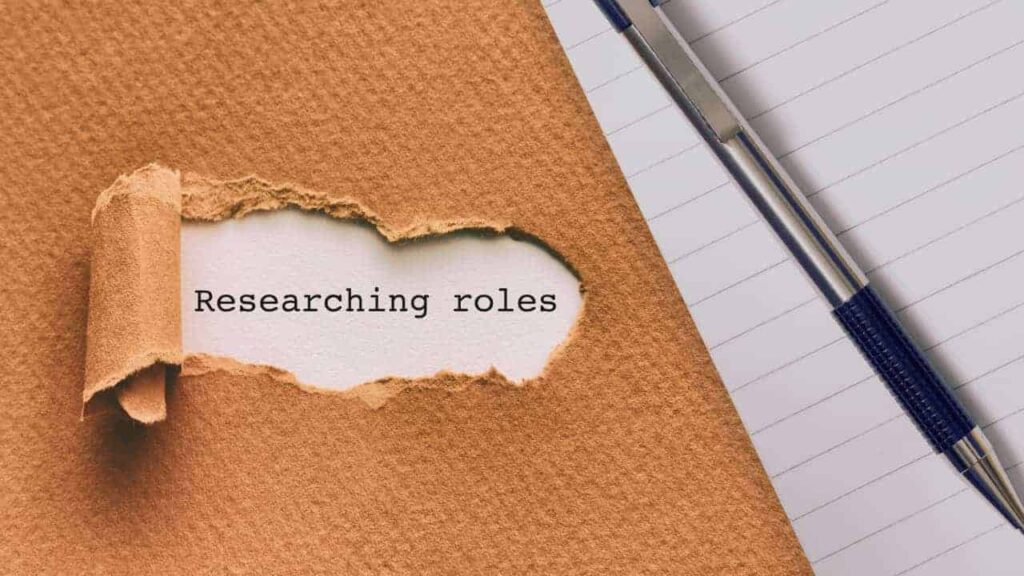
While we were praying, I felt Matt come and hug me and give me the biggest smile. He just had a really big smile and said, “I’m good, Aunt Nini. I’m really good.” I just knew everything was right beyond a shadow of a doubt, and that was the only time, and it was just beyond a shadow of a doubt that he was where he was supposed to be.
That’s beautiful. Wow. Have you had other messages or, without a doubt, signs or anything that let you know that, for example, your grandmother is doing well on the other side, that other loved ones, great grandparents are partying over there or what?
I definitely have had other signs. Even people that weren’t close to me. I had an assistant that we had worked together for years, and her brother was dying of cancer, and he was at a teaching hospital. They were allowing them to experiment on him as part of what they knew he was going to do. I had gone to visit him with her, and when I came back, I had a dream, and it was him. He said, “You’ve got to tell her to let me go.”
As we get older and we need help, we are acutely aware most often that we are a burden. Not only are we more fragile, but we are also having our dignity taken away.
I didn’t know him hardly at all. I met him twice. I came in the next day and said, “Jody, you got to let him go. Brian came to me last night, and you got to let him go.” She said, “Okay.” They went and talked to him, and he was passed within a day. Afterward, I had another dream about him. He was like a bird and a cardinal and said thank you.
Wow. I want to share with you something I wrote down about a half minute ago because I take notes while I do my interviews so that whatever pops in, I’m asking about. Guess what the word is? I wrote it down about half a minute ago.
Cardinal.
Cardinal.
Oh, wow. I didn’t tell her. She came in a little later and said it was really weird. This cardinal was hanging outside my front door and just would not leave. I said, “Well, I better tell you now. That was Brian, and he just wanted to tell you.”.
The thing I was going to share about the cardinal is that I don’t come up with questions in advance for these interviews. I might have said this to you, Lisa, before, or I’m sure I must have said this in previous episodes for my listener to know that I just channel the questions. I don’t prep because I’m nothing trying to wing it. I’m just trying to step aside my ego so that I am in a place of service and just asking what is meant to be asked.
I was meant to raise this as a point that the whole cardinal thing is when you have an animal act out of character, like a cardinal. That was this Facebook video that went viral where I think the grandmother or the mother told her daughter, “I’m going to give you a sign, and it’ll be a cardinal,” or something like that. After the mother passed, this cardinal came and visited the daughter, landed on her hand or on her arm, and wouldn’t leave.
Then, finally, after a while, kind of shaking her arm, the cardinal flew but then came and landed on her shoulder. Something unusual that’s out of character for an animal is, without a doubt, a sign because that can happen. You can have the soul of a loved one temporarily take over the animal, but it’s completely out of character. It’s amazing. The unseen world is more real than the seen world. That wouldn’t make sense to most people. But once you’ve tasted this and glimpsed it, you can’t unsee it.
When facing the challenges of life, it’s vital to realize the value in the elderly. They embody resilience and have much to teach us, especially about embracing and adapting to new technologies. Share on XNo, you can’t. I think there’s such peace in knowing that we’re all still here, that we’re all still part of this, that we’re all still connected. They say the peace that passes all understanding. Even when I said that I was okay with my nephew’s death, it worried me how someone might take that because he’s 19, and everyone’s so judgmental now. I think it’s very much like a surgeon cutting out a cancer and then somebody else doing something horrific. If you don’t understand the context of it, it’s very hard to know whether this person’s a serial killer or that person’s a surgeon.
When we base our decisions, actions, and belief systems on fitting in, looking good and not looking bad, we deny our true nature as creator beings who are creating with God, and then we just play small. If you have no enemies, you’re playing small. If you don’t have critics, if you don’t have haters or trolls, they’re just people who misunderstand you and your motives or read into things or whatever or have an axe to grind, you’re not there for them.
I remember this from one of the trainings I attended with Bob Allen. He’s an amazing best-selling author. He explained that you’re here, the hand raisers, you’re here for the smiley faces in the audience. Don’t focus on the frowny faces and try to win them over. If you’re up on stage, just focus on the smiley faces. You’re not here for the frowny faces. The frowny faces aren’t here for you.

I think I heard one of my friends a long time ago. She said, “Lisa, you’re magnetic.” I got all my ego filled up. I’m like, “Oh, I’m magnetic.” She said, “That means you’re going to repel a lot of people, and you’re also going to attract a lot of people. But don’t try to go after the people you’re going to repel. Try to serve the people you’re going to attract. It’s a lot easier. That goes for not just your clients and your friends but your employees.”
Everybody. Even family. You’re going to repel some family members.
I think a lot, too, about how I have been different in my journey and how much I must have been a pain in the rear end. I still am, I’m sure. But I have more grace now because I’m able to actually look at myself and say, “Okay, I’ve grown in this space.” I’m able to take a beat here where before I would have just said, “No,” I expect perfection, or I would have done it this way or whatnot, instead of, “Hey, the world didn’t end because we didn’t draw that line correctly.”
I think it allows me to really understand that when you go and start in school, whether it’s like, for me, design school, you’re not expected to be a seasoned designer. You’re expected to learn how to crawl, walk, and talk. The expectations aren’t this yet. I think now we have this weird timeline expectation that either spiritually, in business or as parents, we’re supposed to be at this higher level. And we offer no grace for folks who aren’t, who are making assumptions and acting out of fear or pain.
Resonance isn’t just a spiritual concept; it’s practical. When things align, it’s like being in harmony with a beautiful piece of music, making even the mundane moments transcendent. Share on XOne thing you said that I just want to give you a little bit of a hard time on is you said that you’re a pain in the a** for some people. There’s a better way to frame it because your words are powerful. You create your reality with your beliefs, words, and expectancy, positive or negative. I might invite you to think of this as dissonance instead. If you’re out of resonance with certain family members, employees, colleagues, or industry folks, it’s nothing that you’re a pain in the a**.
It’s that you don’t resonate at the frequency they’re at, and you probably are doing that by choice. You don’t want to drop down to that frequency, so you resonate at a higher frequency, and then you attract the people into your life who are at that similar frequency to you.
That’s perfect. That is so powerful. I’ve actually been thinking about that a lot lately. When you hear and read in the Bible that the heavenly host and the angels are singing, that’s the biggest thing. That it’s sound, it’s resonance. There is something that changes in us on a molecular level. I remember hearing CeCe Winans. I don’t know if you’ve ever heard her sing or not, but live in concert, and she had a whole stadium, and she was singing Hallelujah.
Everybody else was singing it with her. It was like an LSD trip. I’ve not been on LSD, but what I would imagine and what people describe it, it felt like the ceiling was opening and everybody was vibrating together on the same level and that we could have moved mountains. It really was tremendous. I bought tickets to another city to take my mother-in-law there. It just wasn’t the same thing. Something special happened during that previous concert.
I had an experience that was like an LSD trip, too. I was in India, and I had just been touched on the head by an Indian monk, and everything was in technicolor, like a cartoon. I just felt this deep sense of peace. That’s when I went from being agnostic, almost atheistic, my whole life, at age 42, to being connected to God. I won’t even say a believer because belief doesn’t even begin to convey the power of this. God is an experience, not a belief, and it is what the monks had taught me there on that trip.
Did you get plugged in?
I did.
He literally plugged into the source. That’s awesome.
There’s a movie I want to mention to you, and I want to get your take on it. I bet you’ve seen it. It’s an old movie. It’s called Tuesdays with Morrie.
What do you want to share about that movie? I just recently rewatched it. I watched it with my 27-year-old daughter, and it was profound. I saw it maybe a decade or 15 years ago, something like that. I just recently resaw it in the last couple of weeks. So it’s a beautiful, powerful movie. It’s about death, but it’s also about living. I just think there are so many lessons and teaching points in there. What would be the thing that stands out for you?
I think we honor other people, and even if it feels like it’s kind of work sometimes, which at least I took that from that where he was showing up, and he was doing it to honor him, that quite often the gift that we get is ten times, a thousand times what we think we’re ever getting or giving to someone else. It was meant for us. So when we think we’re doing something for somebody else, it’s meant for us.
Yes. As an adjunct to that or corollary, when we’re giving advice, let’s say spiritual advice in particular, I’ve noticed this to somebody else that is meant for us as well. I’m like, “You’re going through this. I have just the book for you, or I have just the video or seminar to recommend to you, or here’s a great quote that might help you or whatever.” I’m listening for the wisdom nugget for me in that same statement because I know that that’s for me at the same time.
God chooses us to hear something because we both need it, and it creates a deep connection and resonance.
I think that that’s wisdom. That is because it’s about what’s coming to and through you, not your ego. A lot of people think it’s like, “Oh, I’m delivering this down to you to help you up by giving you this hand.” In reality, I think God chooses us to hear something because we both need it, and it creates a deep connection and resonance. Maybe we couldn’t hear that message if we didn’t need to deal with it.
Everything is so precisely orchestrated from above that it makes total sense. If nothing random happens, something is there for you. It’s on purpose. So what’s the purpose? I remember reading a quote, I think, from 500 years ago, as a famous rabbi and see if I could find what I was going to say.
Gosh, you’re old if you read it for 500 years.
I recently read it six months ago or a year ago. This great quote is from hundreds of years ago. It’s from a very righteous, holy rabbi called the Baal Shem Tov, “Nothing is by chance. Every single event or experience in a person’s life is predetermined and purposeful. If a person chances to witness the degradation of his fellow, he must realize that he, too, suffers from the same laughter in one form or another. Otherwise, why would divine providence have caused him to see his fellows failing, obviously, to open his eyes to something that he must correct in himself? So even if one is your enemy, and justifiably so, even if his moral and spiritual downfall is one of his own making, it could have happened without your having been made aware of it that you have witnessed. It has nothing to do with him. It is a message to you, enjoining you to deal with a similar negative element, be it in the subtlest of forms within yourself.”
I love that. That is perfect.
If I’m coaching somebody, I know that there is a reason, not just for me to hear that, but also to see the reason for the person’s challenge, because I’m learning from not just the coaching I’m giving, that I’m receiving, that I’m just channeling, but also I’m learning from the challenge the person’s going through. Maybe I need to go through the experience with that person or at least listen to what they’re going through with so much compassion that I can experience it myself to some degree and learn the lesson without having to go through it personally.
Granting grace to oneself and others is vital. We often set high expectations, and when they're not met, offering grace can be a powerful and healing response. Share on XThat’s what family does. That’s what. When you care about somebody, if you’re an older brother or sister and you do something stupid, the caring thing is not to hide that mistake is to tell your brother and sister about it, and it got you in trouble. Don’t make the same mistakes I made. Now, you still have to have a heart to listen, but. That goes for your business and everything. We do a transformer, and every single person on our team every week has to admit to something that they failed at or learned from and out themselves.
It does a couple of things. When you do that, it. One creates authenticity and safety because when you do it enough, you’re no longer hiding from the secrets. Then, the other thing it does is let people feel like they got my back. They were willing to be vulnerable to make sure I didn’t make that XYZ mistake. So it’s a really powerful thing.
You mentioned transformer, so that’s inside baseball for us—Strategic Coach, folks. It’s called an experience transformer. That’s a tool from strategic coach Dan Sullivan. If you could really briefly explain the concept behind experience transformer and how somebody who’s listening and has never done strategic coaching can apply that in their own life, what would that be?
Perfect. So you take an event or something that happened that you want to improve on or that you failed at, and or that didn’t go well, and you write down what you own in it. Like you, not like, you know, Bobby didn’t do this. Maybe I didn’t tell Bobby there was a deadline. You write down what you own in it, and then you brainstorm what worked. What didn’t work? Actually, I just did this with someone that I was mentoring, and she had to be dropped down a grade in geometry.
I said, “Okay, what happened here?” She said, “Well, when I took algebra, I cheated on the final exam. I cheated,” and I said, “Okay, what worked?” And she said, “Well, nothing worked.” And I said, “No, you passed algebra. That worked.” And so, there was something that worked in it, but what didn’t work was it created this domino effect of downfalls for her now, in the next level of math. You brainstorm those positives and negatives, then rewrite it as if you could go back in time. How would you do it again and scribe that out so that other people don’t make the same mistake and that you learn the lesson. You basically take lemons and make lemonade.
That’s great. What’s an example of something you have rewritten or re-experienced differently, more powerfully, the second time by using experience transformer?
We have done this so much just recently. I don’t want to talk on the phone. I’d rather do a written communication with an email, not even a text. I created some mistrust with my team because I did not communicate properly and fast enough on the phone. It was because of my own selfish behavior. I don’t want to get caught up in a long conversation. I really don’t want to talk to you. I’m more of a black-and-white kind of person.
One creates authenticity and safety because when you do it enough, you’re no longer hiding from the secrets.
There was a miscommunication on my part because of a lack of trust. They felt I was hiding things from them, and it cost us a project with a client and owning it. I very easily could have gone back and allowed myself some discomfort to communicate in a proper way to those who really needed to hear it. I learned from that that I was speaking Greek, and they spoke English, yet I expected the results to be exactly the way that I wanted them to be.
I haven’t given them the courtesy to even speak their language yet. I was irritated by the outcome. Moving forward, I have to recognize that communication is not always what we think it is. How we communicate is not how someone else communicates. In order to get the desired outcome, I’ve got to really work hard at making sure I’m using the right tool, the right language, the right timing, and painting the vision the way I need to be painting it. It really helped me. I’ve had my business for 25 years, and every single day, I have to transform something.
It reminds me of CBT, and it stands for cognitive behavioral therapy. You have this kind of acronym, as it’s kind of a framework where a plus b equals c is the first version. The activating event is A, B is your belief system, and C is consequences. If you apply CBT and re-experience that event after the fact with a new and improved belief system, so now, if you re-experience at this time where you add d and e to the equation, you still have the activating event that happened already and your belief system, you may not have completely overwritten it or overwritten it, but you add a D to the equation, which stands for dispute.
You’re going to dispute that belief system because that belief system is probably irrational and is a carryover from your childhood and maybe some trauma or dysfunction and so forth. By disputing that belief system, you can now have an E, a new effect. You have essentially rewritten that experience.
We’re all meaning-makers. We’re creating stories about the things that we see in the world, and most of it’s not even true. Somebody didn’t call us when they told us they’d call us, and we make up some story about how they’re dissing us, or they don’t respect us or whatever, and they just had some indigestion and went to lay down.
The biggest thing that you can do is meet somebody where they’re at.
Often, when I catch myself in that kind of thing, please just check my attitude because who knows what is going on in their life? There could be x, y, and z. On the other hand, if this is a person that I just need to cut and create some boundaries from, allow me to understand that, too, because sometimes it is. But you need, instead of wrapping myself up in a story that gets me spinning, I don’t know the story.
It’s that story of the guy on the train with the children behaving badly, and someone snaps at them, and the man just says, “Oh, I’m sorry. We just came from the hospital.” They just lost their mother. Your entire mindset changes once you understand their story. I think that’s for seniors. For me, the biggest thing that you can do is meet somebody where they’re at. Meet them where they’re at.
Right then, that moment, if they’re 20 years old, in their mind, and you’re their boyfriend, just be that guy. Don’t say, “No, I’m your grandson.” Just say, “Oh, you look so pretty today.” Our job is not to force them into reality. I did a talk one time, and it was called Lie To Me If You Love Me, which got some haters, I will say, but it was about my grandmother and my nephew’s death.
You know, with my grandmother, it’s abusive to tell her over and over again that her great-grandson died. It’s abusive when she asks where he’s at. It’s better to say, “Oh, he’s not here yet. He’ll be here tomorrow.” There are certain times when protecting her reality is showing much more love than forcing her into a nightmare that gets repeated over and over again, like Groundhog Day.
I know we’re out of time, so if you could leave one passing word of wisdom for our listener and your contact details or website or whatever you’d like to leave for our listener, what would that be?
I would say what my nephew would always post, and it was to overuse ‘I love you.’ You can contact me at my website lisamcini.com.
You’ve got the Amazon docu-series that we didn’t even get to talk about.
It’s a lot of fun. We’ve got a little supernatural in there. We’ve got some renovation. My parents are in it. But basically, it shows my grandmother’s legacy. Now, letting people experience technology and all kinds of aging in place, stuff to help you live with more freedom and dignity as you age.
A docu-series, not just a documentary. How many episodes?
But they’re not super long, and they’re very fun. We even won a Telly Award for them. It was done very well by 22 Emmy award-winning director Nick Nanton. You can find that on Amazon: Infinite Living Secrets of The Werner House
Awesome. And a Telly Award is kind of a big deal, right?
It was kind of a big deal. I didn’t understand that. I’m like, “Well, we didn’t go for an Emmy, but in our category, we won along with the BBC and ESPN.” Apparently, it’s a little bit harder than an Emmy. So they did a fantastic job. They showed up with the cameras, and we did, but we talked about our journey, the renovation of the house, and spiritually clearing the house. We flew in Kim White and Daniel White to do that from Austria.
He’s amazing.
It’s a really good, fast, quick thing that’ll make you laugh, learn a little bit and maybe make you cry.
Amazing. By the way, Kim was a past guest on this podcast.
For anybody who liked his stuff, episode two is all about him.
Awesome. Thank you so much for joining us today.
Important Links
Connect with Lisa Cini
Book
Business/Organization
Films
People
Previous Get Yourself Optimized Episodes

